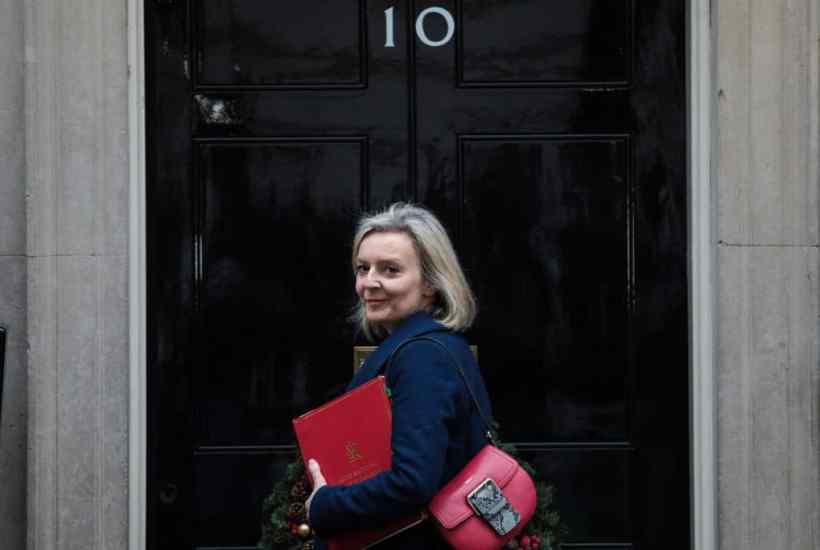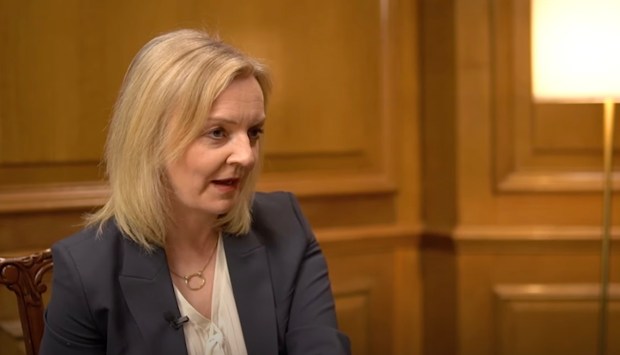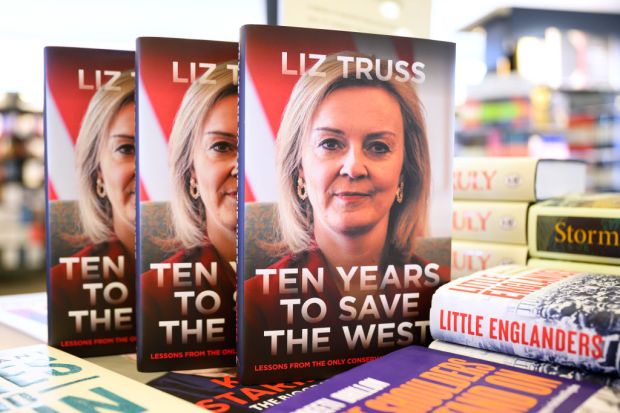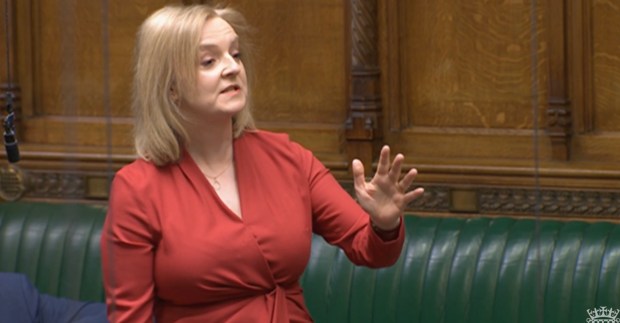A vital part of gamesmanship, according to the British author Stephen Potter, is to disconcert your opponent before they have joined the game. True to form, gamesmanship has already begun in earnest on one matter likely to be high up in Liz Truss’s pending in-tray: the Northern Ireland Protocol negotiations. It comes both from the EU and from Irish nationalists.
The Protocol is that part of the EU withdrawal arrangement aimed at preserving the integrity of the EU single market, despite the existence of open borders between the UK and Ulster and Ulster and the Republic. It provides two things: limits on state aid to Ulster enterprises, and administrative checks on goods passing between the UK mainland and Ulster in case non-compliant goods somehow seep into the EU from the UK by way of re-export. Neither problem is very significant in practice; but this has not stopped the EU fairly cynically weaponising the arrangement to drive a wedge between the UK and Ulster by demanding disruptive customs checks, restrictions on goods that can move between the mainland and Ulster, and intrusive oversight of the Northern Ireland tax system.
The Northern Ireland Protocol Bill, now before the Lords, aims to stymie this tactic by allowing the UK government unilaterally to issue ministerial orders scrapping checks on particular UK goods destined for the Northern Ireland market and restoring tax breaks to Ulster companies. To protect EU interests, it will remain illegal to re-export affected goods to the Republic.
All this worries the EU, an organisation congenitally unhappy with recalcitrant national governments. Last month, Brussels acted. It warned Liz Truss that it could abandon Protocol negotiations unless the Bill, which it called a ‘loaded gun’, was abandoned. And this weekend it infiltrated Maroš Šefčovič, its grandly-named commissioner for interinstitutional relations and foresight, into a meeting of the British-Irish Association in Oxford. In a rambling speech to this group of the great, the good and the bien-pensant, Šefčovič pointedly referred to the EU as devoted to the interests of the peace process and the people of Northern Ireland. He again demanded the abandonment of the Bill, seemingly on the basis that only a solution agreed by the EU was acceptable.
Joining the EU in this push to catch the new PM on the back foot were two other bodies. One was the Irish government. Always happy to discomfit the UK, the Taoiseach also addressed the same meeting in much the same terms as Šefčovič had. The other was Sinn Féin, an organisation with an obvious interest, quite separate from that of the EU, in alienating Ulster people from the UK. It has started a campaign in the United States to persuade the administration of an all-too-manipulable Joe Biden to back the EU line in any trade negotiations with the UK.
The pressure on the British government is building. Labour MPs – some of whom share a dislike of Ulster unionism in any form – will clearly support it. So will the House of Lords, which will undoubtedly savage the Protocol Bill when it discusses it. Liz Truss nevertheless has every reason to stand firm.
First, when push comes to shove the EU position is not easy to defend. References to the peace process are a red herring: the idea that peace is somehow threatened by allowing freer trade between mainland Britain and Ulster is preposterous. So too with the EU’s desperate desire to preserve its self respect and be seen as able to impose its will: except to a few Remainers or a Eurocrat, it looks deeply unattractive. Meanwhile, on the issues that matter – the prosperity of the people of Northern Ireland, their ability to have the widest choice of goods and services, and the profitability of businesses both sides of the Irish Sea who supply them – it is hard to see what is not to like about the UK’s proposals, which seek to maximise these benefits with a light-touch system of regulation aimed at keeping trade flowing freely while safeguarding the EU’s legitimate interests.
Secondly, the Protocol Bill in any case does not change a single rule. It merely gives the government the power under UK law to adjust the rules of trade between the mainland and Ulster if it so wishes. In other words, it allows us to negotiate with a free hand. Whether the statutory powers are exercised depends on the negotiations: if the EU makes reasonable concessions, it will never have to be exercised at all. What is disingenuous is the EU’s demand that the government give up this power and thereby be forced to fight with one hand tied behind its back, prevented from making any changes to which the EU does not choose to agree.
Thirdly, the complaint sometimes made that the UK might be in technical breach of international law by changing the Protocol unilaterally (the Protocol being an international treaty) is to some extent a smokescreen. With all international law, its precise interpretation is flexible, fluid and often as much political as jurisprudential. Many states at one time or another take a fairly expansive view of their rights: the notion that the UK could somehow become a pariah state if it takes an extended view of its rights here is, to say the least, fairly far-fetched.
Whoever takes over the Northern Ireland portfolio this week will have their work cut out. (The talk is of Shailesh Vara’s possible replacement by Iain Duncan Smith, who is known to share deep scepticism about the working of the Protocol.) But the omens are reasonable that, assuming the Bill is passed, they will at least have the wholehearted support of No. 10 in their ongoing negotiations with Brussels. Those who have the interests of the people of Ulster at heart should rejoice in this, and equally support the UK in its fight against an increasingly dog-in-the-manger EU.
Got something to add? Join the discussion and comment below.
Get 10 issues for just $10
Subscribe to The Spectator Australia today for the next 10 magazine issues, plus full online access, for just $10.




















Comments
Don't miss out
Join the conversation with other Spectator Australia readers. Subscribe to leave a comment.
SUBSCRIBEAlready a subscriber? Log in